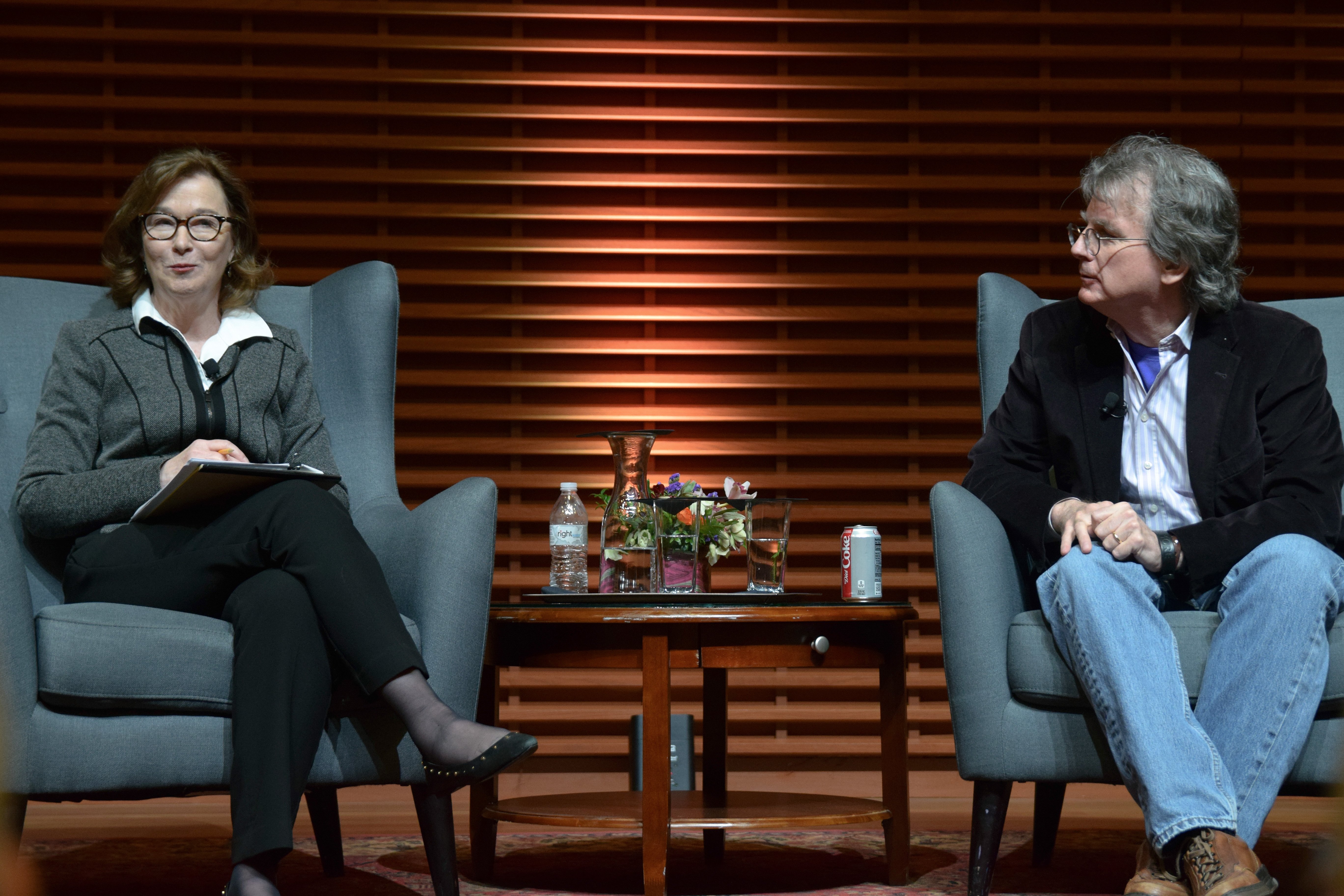Mark Zuckerberg’s former mentor and one of Facebook’s earliest investors, Roger McNamee — author of “Zucked: Waking Up to the Facebook Catastrophe” — is now one of the company’s most vocal critics. McNamee addressed the dangers to society and democracy posed by social media in a talk at CEMEX on Thursday that was moderated by Ann Grimes, associate director of the Brown Institute for Media Innovation.
The event was sponsored by the Corporations and Society Initiative of the Graduate School of Business in collaboration with the Center for Internet and Society and CS+ Social Good.
McNamee first met Zuckerberg when the latter was 22 years old. He made it clear that in their first interactions, he was initially very enthusiastic about Facebook’s future prospects. At one point, when Google and several other big companies were interested in buying out Facebook, he told Zuckerberg that “nobody gets the perfect idea at the perfect time twice,” advising him against selling the project.
However, after retiring in Dec. 2015, McNamee got his first indications that something was amiss at Facebook. Politically divisive misinformation began flooding the platform, and, to his chagrin, the organization was not handling it responsibly.
The problem, McNamee quickly clarified, was not with the company’s leadership. Rather, the issue was its new business model: a result of trends in both Silicon Valley and America broadly.
“The problems are not isolated,” McNamee told The Guardian in a recent interview. “They are systemic. They’re related to a business model that has worked extraordinarily well for investors and horrifically for everyone else.”
McNamee has noted before that the issue is bigger than just Facebook, but a problem with “the entire internet industry” itself. “Mark is just one of the two most successful practitioners of it,” he said, referring to Facebook and Google and the way they navigate Silicon Valley and the digital world.
In the modern world, McNamee said, consumers are treated more like fuel and less like customers.
“There has been a deterioration of corporate standards… The culture is way off track,” McNamee said. He highlighted the spread of fake news and polarizing content on the platform, which — however damaging to democracy — Facebook profited from.
“There was something about it that gave an unfair advantage to really intense, nasty messages over neutral messages,” McNamee explained.
Allegations of Russian interference in the 2016 presidential elections were the final tipping point. McNamee complained to Facebook’s top leadership that there was something wrong with their algorithms that was letting bad actors take advantage of the platform. On receiving a response from Zuckerberg and Chief Operating Officer (COO) Sheryl Sandberg, McNamee felt that “they didn’t embrace [it] like it was a real business issue.”
However, when asked about exerting more pressure on the company — in which he still has stocks — McNamee said that he did not want to get involved in the day-to-day functions of the organization but would continue to advise its leadership.
Content moderation alone would not be an effective solution absent a larger change to a business model that “amplifies, asymmetrically, the most negative voices in society,” McNamee said.
Contact Devansh Sharma devansh ‘at’ stanford.edu.
